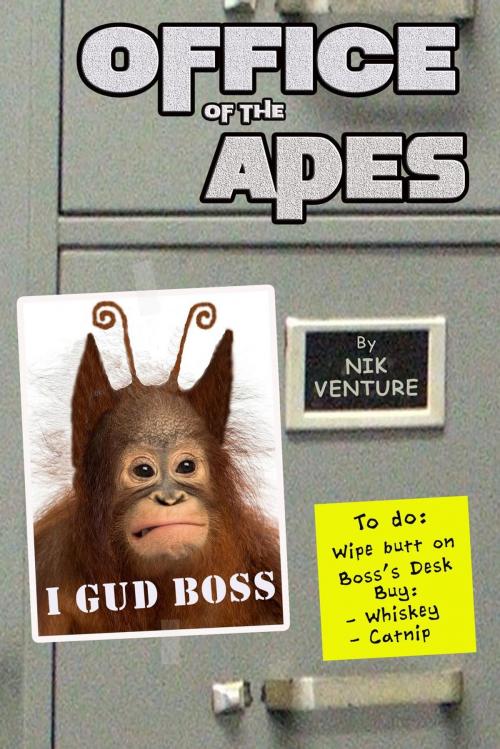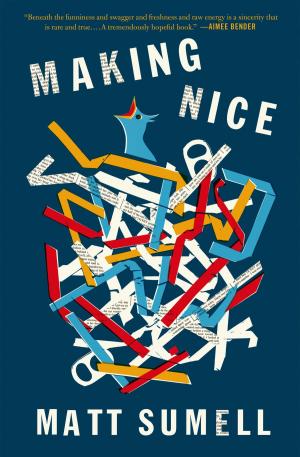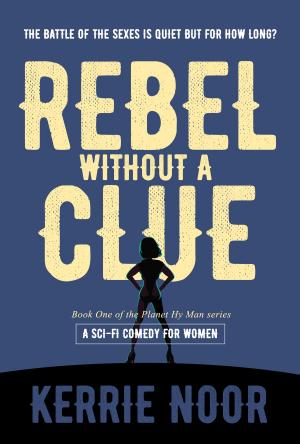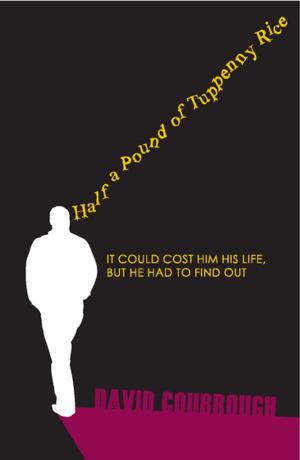Office of the Apes
Nonfiction, Religion & Spirituality, Philosophy, Free Will & Determinism, Entertainment, Humour & Comedy, General Humour, Fiction & Literature, Humorous| Author: | Nik Venture | ISBN: | 9781524219710 |
| Publisher: | Chaldus | Publication: | March 5, 2016 |
| Imprint: | Language: | English |
| Author: | Nik Venture |
| ISBN: | 9781524219710 |
| Publisher: | Chaldus |
| Publication: | March 5, 2016 |
| Imprint: | |
| Language: | English |
If you are taking your life too seriously: This is your antidote.
What would you think if I told you that you didn’t even have free will?
Although that sounds ludicrous, it is a well-established branch of philosophy known as determinism. But it isn't a semantic position based on esoteric jargon, its origin comes from the world of physics and its basic thrust comes from minds no less that Einstein, Hawking, Laplace, Hobbes, Kant and others. Moreover, advanced theoretical physics research, by renowned physicists Greenberg and Svozil, brings new science to this philosophical conundrum. The idea, in a nutshell, is that all of the particles in the universe are in motion and follow the laws of physics and so their positions are all predetermined from their previous state; hence the future is also determined from the position of all the particles in their present state, including everything down to the subatomic particles making up the synapses in your brain. They are in motion and follow the laws of physics; nothing can actually ever be random in a scientific sense.
The ultimate conclusion of this realization is that free will is an illusion -- an elegant illusion. Yet it is an illusion so strong that even understanding this fact doesn't impugn moral consequence (i.e. using this as an excuse not to be responsible for one's actions, because everything has already been predetermined). This is all based on current science and, by book's end, where this is addressed, you will comprehend the concept fully and believe it all.
Then again, maybe you won’t.
However, this highly intriguing hook is merely the cosmic soul threading through this laugh-out-loud, comic novel. Let me ask you another question: If your office or job sucked how would you exact your escape?
When young magazine editor Bonkiewicz (a.k.a. Bonkers) goes into a meeting with his publisher, he suspects that he is about to be fired. Quick on his feet, he concocts a tenuous plan to produce an important celebrity interview and front cover story. By extension, a (secretly prostituted) advertising tie-in will also land a huge new account that may very well save the tottering magazine along with his career.
Overwhelming his interview appointment is his girlfriend who runs, out of their beach bungalow, an underground railroad for escapees from AA -- and other sordid types. But his biggest challenge will be surviving a road trip to the interview at the swanky Ebell Theater (home that night to a red-carpet Hollywood event), because, tagging along will be his uninvited eccentric and unstable friend travelling with his own unusual homeless "entourage."
In the protagonist's quixotic and picaresque quest for truth (beyond merely surviving), he must navigate through the many odd tiers of social class, in both the Southern California culture and in his Machiavellian office life. He perseveres and, along with the reader, may catch a glimpse of his place in the cosmos -- but more importantly, realize that life is only worth living if you can have a laugh along the way. And to do this, one must throw off some illusions and embrace others.
If you are taking your life too seriously: This is your antidote.
What would you think if I told you that you didn’t even have free will?
Although that sounds ludicrous, it is a well-established branch of philosophy known as determinism. But it isn't a semantic position based on esoteric jargon, its origin comes from the world of physics and its basic thrust comes from minds no less that Einstein, Hawking, Laplace, Hobbes, Kant and others. Moreover, advanced theoretical physics research, by renowned physicists Greenberg and Svozil, brings new science to this philosophical conundrum. The idea, in a nutshell, is that all of the particles in the universe are in motion and follow the laws of physics and so their positions are all predetermined from their previous state; hence the future is also determined from the position of all the particles in their present state, including everything down to the subatomic particles making up the synapses in your brain. They are in motion and follow the laws of physics; nothing can actually ever be random in a scientific sense.
The ultimate conclusion of this realization is that free will is an illusion -- an elegant illusion. Yet it is an illusion so strong that even understanding this fact doesn't impugn moral consequence (i.e. using this as an excuse not to be responsible for one's actions, because everything has already been predetermined). This is all based on current science and, by book's end, where this is addressed, you will comprehend the concept fully and believe it all.
Then again, maybe you won’t.
However, this highly intriguing hook is merely the cosmic soul threading through this laugh-out-loud, comic novel. Let me ask you another question: If your office or job sucked how would you exact your escape?
When young magazine editor Bonkiewicz (a.k.a. Bonkers) goes into a meeting with his publisher, he suspects that he is about to be fired. Quick on his feet, he concocts a tenuous plan to produce an important celebrity interview and front cover story. By extension, a (secretly prostituted) advertising tie-in will also land a huge new account that may very well save the tottering magazine along with his career.
Overwhelming his interview appointment is his girlfriend who runs, out of their beach bungalow, an underground railroad for escapees from AA -- and other sordid types. But his biggest challenge will be surviving a road trip to the interview at the swanky Ebell Theater (home that night to a red-carpet Hollywood event), because, tagging along will be his uninvited eccentric and unstable friend travelling with his own unusual homeless "entourage."
In the protagonist's quixotic and picaresque quest for truth (beyond merely surviving), he must navigate through the many odd tiers of social class, in both the Southern California culture and in his Machiavellian office life. He perseveres and, along with the reader, may catch a glimpse of his place in the cosmos -- but more importantly, realize that life is only worth living if you can have a laugh along the way. And to do this, one must throw off some illusions and embrace others.















